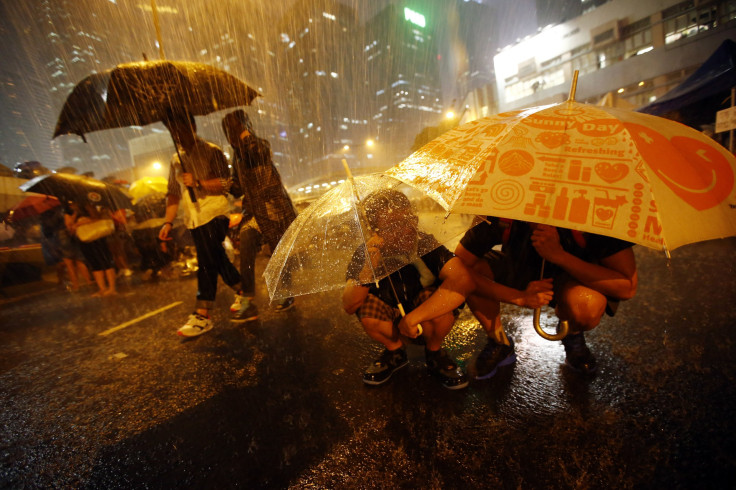Hong Kong Protests: Sympathizers Detained In Mainland China Over Support Of Pro-Democracy Demonstrations

Almost two dozen people who expressed support for pro-democracy demonstrations in Hong Kong were detained Wednesday amid growing efforts by Chinese authorities to quell anti-government sentiment in mainland China, human-rights groups said. Police reportedly targeted those who publicized their support for the protests online in general or via social media in particular.
Many of the detained had either participated in or publicized the so-called Going Bald for Hong Kong campaign, which has supporters shaving their heads to show support for the Hong Kong demonstrations, the New York Times reported. Authorities are purportedly targeting individuals who share news or photographs of the protests online.
Besides the detainees, several other people were interrogated by police and warned that continued public support of the demonstrations would lead to their arrests. Meanwhile, a group of about 20 people was detained in the city of Guangzhou for participating in a public gathering in solidarity with the Hong Kong protests, Chinese Human Rights Defenders said. Dozens more were questioned by police.
Online photos of the Hong Kong protests were mostly removed in China by authorities. The country’s Communist regime is said to be particularly concerned that the demonstrations, made possible by Hong Kong’s comparatively lenient laws and unregulated Internet, will spread to mainland China.
“The Hong Kong protests present a huge challenge to China because everyone here speaks Chinese and there are so many close ties between Hong Kong and China,” Maya Wang, a researcher at Human Rights Watch in Hong Kong, told the New York Times. “No matter how hard the government might try to stop news from getting in, the border remains porous.”
Demonstrators have called on China to allow free democratic elections, especially in light of the Chinese government’s decision to limit voters’ choice of candidates, Reuters reported. Protesters have said Hong Kong’s pro-Beijing leader, Leung Chung-ying, must either resign or face more demonstrations.
Meanwhile, Chinese authorities, fearful of the type of Western-influenced movement that led to the downfall of Ukrainian President Viktor Yanukovych, have cracked down on organizations in mainland China suspected of working with foreign powers to foment unrest, the Washington Post reported. Authorities in Beijing have warned foreign nations not to get involved in the protests.
© Copyright IBTimes 2025. All rights reserved.






















